InvivoGen’s Reviews
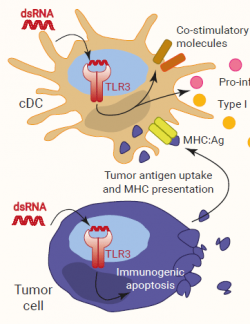
Innate Immunity
TLR3: racing for vaccine advantages
Toll-like receptors (TLRs) play a pivotal role in the initiation of prompt innate immune defenses, as well as in the activation of adaptive immune cells for enhanced and memory responses. Thus, TLR agonists are attractive candidates for vaccine adjuvants and cancer therapeutics
Previous reviews
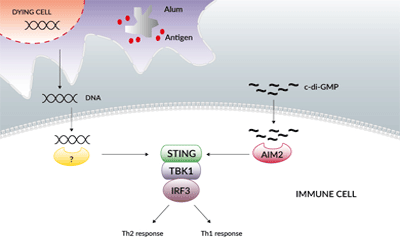
Innate Immunity / STING / Vaccination
STING in Vaccine Adjuvants
Adjuvants enhance and direct the adaptive immune response to vaccine antigens through various mechanisms, some of which are still poorly understood. Recently, STING and more generally the host nucleic acid sensing machinery were shown to play an essential role in vaccination.
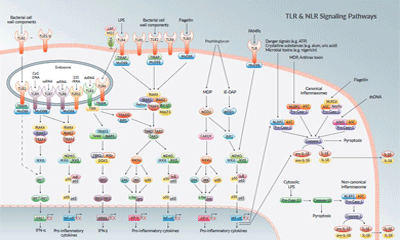
Innate Immunity
Innate Immunity
The innate immune system is an evolutionarily conserved system acting as a first-line of defense against invading microbial pathogens and other potential threats to the host.
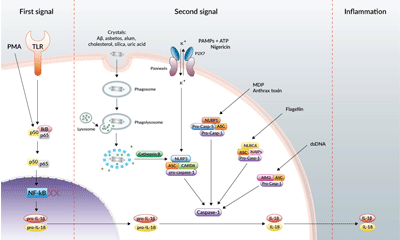
Innate Immunity / Inflammasome
Inflammasomes
The nucleotide-binding oligomerization domain-like receptor (NLR) family of proteins is involved in the regulation of innate immunity responses.
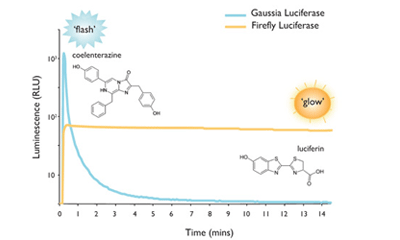
Products
Introducing Lucia: a new secreted luciferase
Luciferases encompass a wide range of enzymes used for bioluminescence, the emission of light produced by a living organism. Luciferases are highly prized bioindicators for life science research and drug discovery, owing to their remarkable sensitivity, lack of toxicity and wide dynamic range of quantitation.
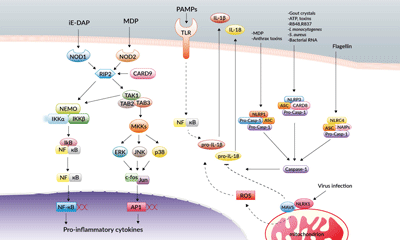
Innate Immunity / PRR
Nod-Like Receptors
The cytosolic NOD-Like Receptors (NLRs, also known as CATERPILLERs, NODs or NALP/PAN/PYPAFs) are nucleotide-binding oligomerization domain containing receptors.
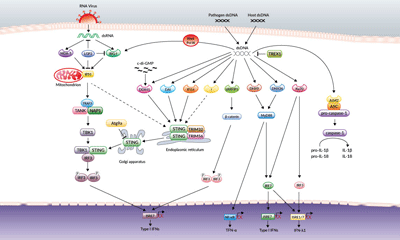
Innate Immunity / PRR / STING
Cytosolic DNA Sensors (CDSs): a STING in the tail
The innate immune system provides the first line of defense against infectious pathogens and serves to limit their early proliferation. It is also vital in priming and activating the adaptive immune system.
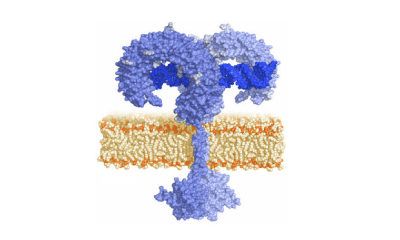
Innate Immunity / PRR
Toll-Like Receptors
Toll-Like Receptors (TLRs) play a critical role in the early innate immune response to invading pathogens by sensing microorganism and are involved in sensing endogenous danger signals.
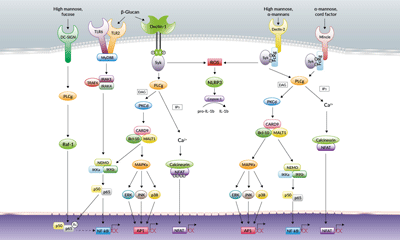
Innate Immunity / PRR
C-Type Lectin Receptors
C-type lectin receptors (CLRs) comprise a large family of receptors that bind to carbohydrates in a calcium-dependent manner.
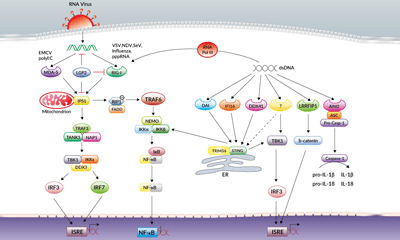
Innate Immunity / PRR
RIG-I-Like Receptors & Cytosolic DNA Sensors
RIG-I-like receptors (RLRs) constitute a family of cytoplasmic RNA helicases that are critical for host antiviral responses.
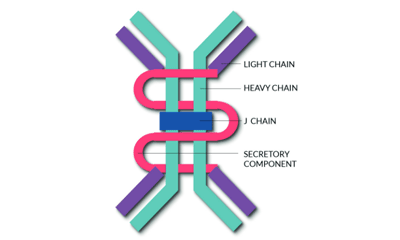
Vaccination
Immunoglobulin A (IgA)
The mucosal surfaces represent the largest area of exposure of the body to external pathogens. Immunoglobulin A (IgA), in its secretory form, is the main effector of the mucosal immune system and provides an important first line of defense against most pathogens that invade the body at a mucosal surface [1].



